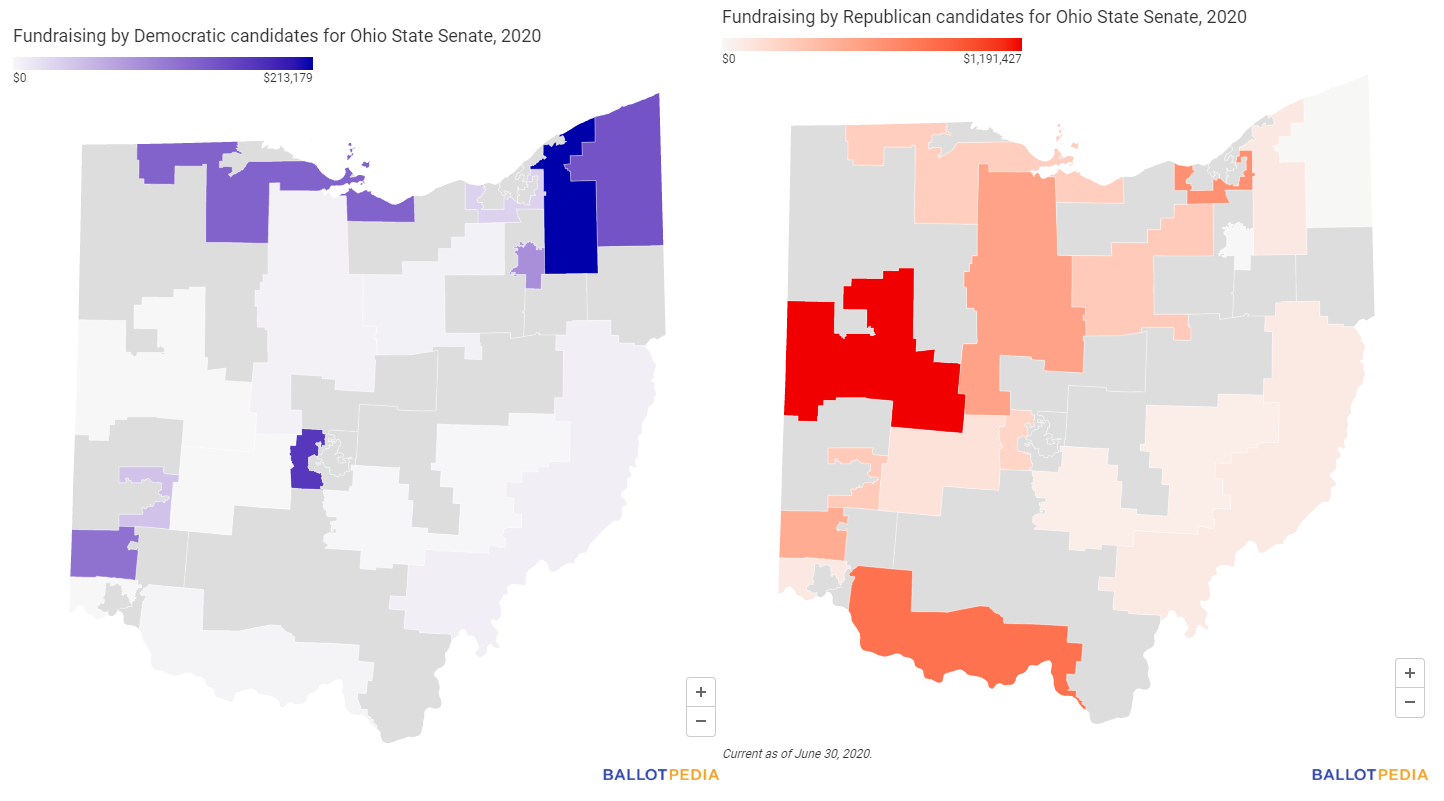Analyzing campaign finance data for state legislative races in nine states
We partnered with Transparency USA to take a closer look at 2018 and 2020 campaign finance data for Democratic and Republican legislative candidates in nine states—Arizona, Florida, Michigan, Minnesota, North Carolina, Ohio, Pennsylvania, Texas, and Wisconsin.
Based on semiannual fundraising reports through June 30, overall contributions favored Republican candidates in five states—Arizona, Florida, North Carolina, Ohio, and Texas—and Democratic candidates in three states—Michigan, Minnesota, and Pennsylvania. In Wisconsin, Democratic and Republican candidates are nearly tied in contributions, both in the aggregate and per candidate.
As part of our analysis, we recorded the number and average size of donations to Democratic and Republican legislative candidates in each state to see how they changed between 2018 and 2020. We also measured donations to the official PACs of the state branches of the Democratic and Republican parties.
Here's a look at data for a few of these states:
Florida: Republican candidates for the state legislature had raised $20.6 million while Democrats had raised $9.8 million. Per candidate, Republican candidates had raised an average of $108,514, while Democratic candidates had raised $37,424.
Pennsylvania: Democratic state legislative candidates had raised $22.8 million, while Republican candidates had raised $14.4 million. Per candidate, Democrats had raised an average of $86,702, while Republicans had raised $64,587.
There’s lots of data to analyze and there’s a full report with maps and charts for each of the nine states so you can review the data in detail. This is some really interesting stuff—go ahead and check it out!
For instance, see the regional contrast in fundraising between Democratic and Republican candidates for Ohio State Senate:

|